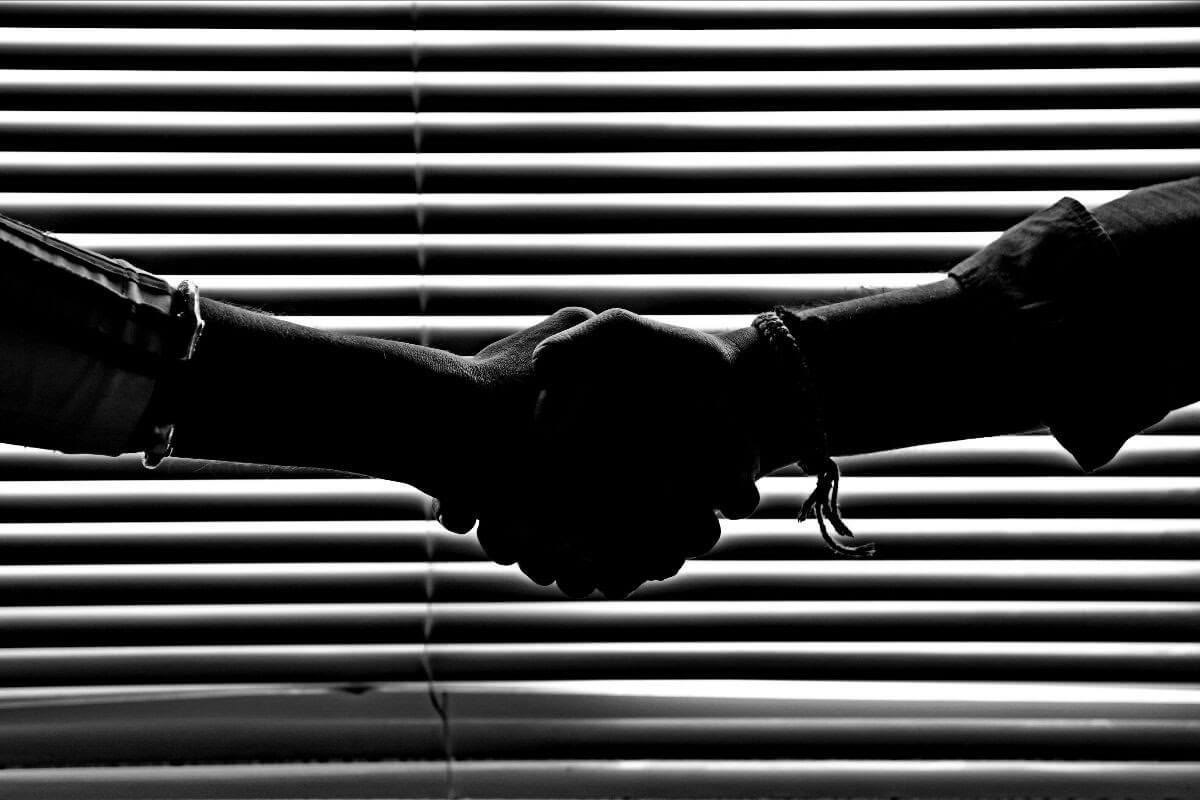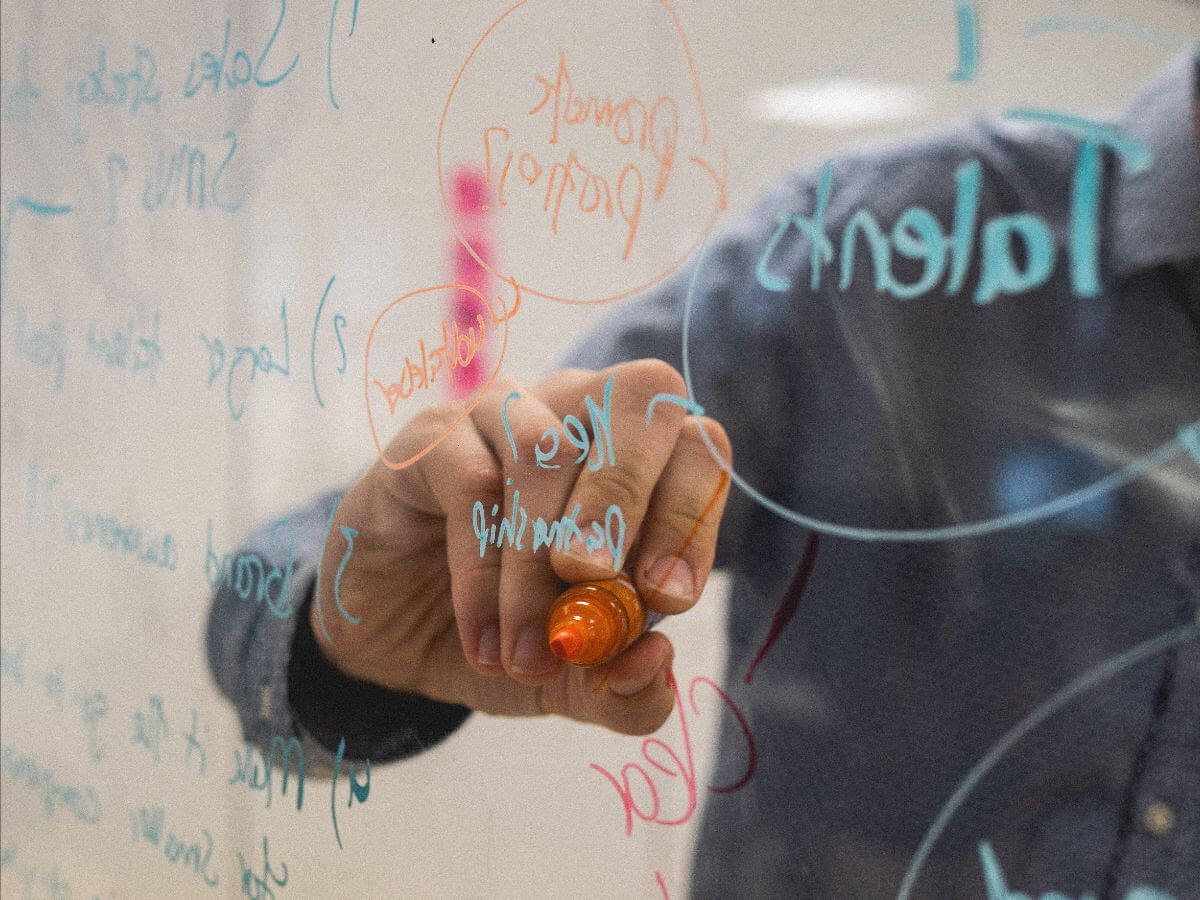Note from FreeFlowing team: This article has been co-authored by Gurudev Prasad and Suharsh Dikshit, the co-founders at BusyBeeBrands, as they reminisce over 8 years of their journey and cull out some interesting life lessons.
December 2022 marks 8 years since we started BusyBeeBrands- a boutique brand-building firm.
This 8-year journey has been nothing short of fascinating. While we did have our share of ups and downs, the best part of the odyssey that still inspires us to come to work every single day is the immense learning we have had at every moment and milestone of this journey.
Here are 8 key takeaways from our adventure so far that we want to remember and share…
1. Two is better than one, but an ego-clash spares none

Entrepreneurship can be a very lonely journey with phases of dejection, introspection and reflection that might make one question their decision to start on their own in the first place. There are many false starts before you find a firm footing. The case was no different for us. But what helped us counter this initial turbulence was the fact that there were two of us with complementary skills and personalities. The feeling of being ‘in it together’ was a great morale booster that kept us going and helped to steer BusyBee into more stable waters.
However, the strength of a partnership isn’t tested when you are in dire straits. Rather, it’s really put to test once the firm is successful. That’s when it becomes critical for both co-founders to understand their strengths and weaknesses, and be very comfortable with delegation.
Trusting your co-founder, allowing them to do their job without feeling insecure about your own position, and encouraging healthy debates and conflicts while firmly having each other’s back- these ensure that the firm is able to sustain its success. Mistrust between co-founders who work on cross-purposes can be a recipe for disaster. We have had our fair share of differences on various aspects ranging from minor operational affairs to BusyBee’s vision and strategy. But we have always resolved them through candid discussions and never shied away from giving each other critical feedback if required. This has helped us make timely course corrections that proved critical in steering BusyBee through the choppy waters of the pandemic period.
2. While it might sound daunting, reputation works on the principle of compounding

Leaving stable jobs in our mid-30s and using PF monies and full & final settlement as our seed fund, we took a massive leap of faith in starting BusyBee. We were driven by our passion and love for brands- and a belief that good work leads to more work. We started with one project in hand and a few in the pipeline. However, our first project in the pipeline got shelved, another discussion took much more time than expected, and many other leads went quiet. But what kept us going was the belief in our skill and the fact that if we focus on doing a stellar job on the project we have at hand, eventually the good word will spread.
For the first 2 years, we worked from project to project, struggling to build a stable pipeline. Our discussions on projected cash flow were on a 2×2 excel sheet table where at any point we barely had funds to sustain ourselves for the next 1-2 months.
But once we completed the first 5-6 projects something changed.
We started getting inbound calls from potential clients, the employees from the companies whom we consulted started referring us to their next employer, the investors in the firms we consulted started requesting us to consult their portfolio brands and we found ourselves in an enviable position to choose the projects we want to work on. Today we even get invited to be a part of boards and get exclusive access to invest in some promising early-stage startups.
In retrospect, it’s the persistence, patience and hard work we put into initial projects that have compounded to pay off manifold returns. Though the adage ‘hard work pays’ might sound quite a cliche- it is the most enduring truth behind building sustainable businesses. There is no substitute for diligence and perseverance in brand building and the same is true for businesses as well. Best businesses are fueled by organic word of mouth and we have been fortunate to have imbibed this lesson at the very inception of our journey.
3. Though it may look like an easy business, but saying No is as important as saying Yes

In the course of BusyBee there have been many easy temptations.
In fact, at the very beginning, we got offers to get acquihired with handsome titles, fat bonuses and tempting payouts. A lucrative commercial contract along with complete autonomy and a ready project pipeline sounded like a great proposition. More so at a time when we were struggling to get a line of sight on our next project.
We discussed, debated and what finally swayed the decision was clarity on why we wanted to start BusyBee in the first place. The idea behind BusyBee was to together build something that we can be proud of while doing something we both love. The proposition before us didn’t meet both of these criteria. So, we took the tough call to respectfully say no and take the arduous road of doing this on our own. In hindsight, this has proven to be a great call- in terms of both reputational as well as monetary rewards.
Through all these 8 years, this clarity of vision has helped us retain our focus and consciously avoid what seemed like low-hanging fruits. Recognizing our strengths, and knowing where we can add real value with our skills, experience and effort we deliberately eschewed expanding into adjacencies which we know are beyond the domain of our personal expertise. Regardless of their ticket size, we also humbly said to no to projects where we felt we can add little value or where brand building is just a cosmetic exercise. Finally, we have resisted falling into the trap of what we internally call ‘Consultant’s Chicanery’- the easy method of cross-leveraging learning from one project to quickly fill-in the strategy template for another client in a similar category. In fact, we are very deliberate about ensuring that every project we undertake carries some unique challenge so that there is something new to learn.
4. Brand Building landscape is ever-evolving, you are never too old to stop learning

Having worked very closely with startups at every stage of evolution and collaborated with founders with some ground-breaking ideas, we have realized that brand building landscape is changing faster than ever before.
The technology lifespan is shrinking. Novelties of yesterday are quickly becoming the norm of today and covid has only accelerated the pace of this change across all categories.
As people who are supposed to bring consumer truths to the table, it is our responsibility to be on top of these trends and inculcate them in our work. Slipping into a comfort zone, blindly following what’s been the norm or not shaking up things is the worst mistake one can make. During the course of our journey, we have always challenged ourselves- experimenting with new methods of consumer outreach, trying out more creative ways to validate and present our findings and exploring newer avenues of growth without compromising on the core vision has ensured that we are not stuck in time.
In fact, as much as possible we try to ensure that we work with brands in categories that we have not worked on before. Going by this principle, we have worked on diverse categories- ranging from Crypto to Chai. Now that’s another matter that this has led to an interesting problem where we are falling short of categories to work on!
Learning is continuous, fluid and medium agnostic- you can learn from books, newsletters, podcasts, social media posts, consumer & client interactions or by just being observant about everything around you. Inculcating a learner’s mindset has been a great value-add that has kept us in good stead.
5. In a circular knowledge economy you can’t be a miser, sharing knowledge always leaves you wiser

At BusyBee we consider ourselves fortunate to be privy to some cutting-edge concepts and visions even before they manifested themselves in the market. The knowledge and perspectives we have gained through these interactions are invaluable. We felt duty-bound to return the favor by open-sourcing our learning.
Now, this might sound non-intuitive, esp. coming from a consultant. After all, isn’t it the job of consultants to charge for their knowledge? What happens if our proprietary methods are known to everyone? Won’t we lose our edge? Won’t we lose business?
Over time we have realized that this fear is totally misplaced. On the contrary, we have found that the more we share our knowledge, the more we learn. Counterpoints and additional perspectives enrich our understanding and leave us wiser.
We have made this knowledge-sharing more systematic and democratized by curating brand courses based on our practical learning and work so far. Creating these courses itself forced us to think deeply about our methods and codify what was so far intuitive and ‘locked within our minds’. Moreover, delivering these courses to brand enthusiasts and founders has been quite an exhilarating learning experience. The questions, debates and deliberations have helped us constantly refine our learning. Even this newsletter is an effort in the same direction.
Today we live and work in a democratic and circular knowledge economy where the more you share, the more you gain. This is an important lesson we have learnt over time at BusyBee.
6. Every discussion doesn’t need to have a winner, humility is the hallmark of a true learner

As consultants presenting their findings and recommending actions, we have to speak with confidence and conviction. We need to come across as self-assured and have an answer to every client query. But over time we have realized that asking the right questions is more important than having all the right answers. In fact, one may not even have all the answers every time. It is OK to say “I Don’t know this” or “Let me understand this some more and then answer your question”. The more you learn, the humbler and more open you become.
And we have learnt this from our clients too. We have met founders with glorious pedigrees (both corporate and academic), amazing visions, those with stellar experience and also those who have been living the lives of their consumers day in and day out. A common theme characterizing them is that they are quite open about the fact that they don’t know the nuances of brand building and that they are willing to listen and learn. They embrace their vulnerabilities and are willing to do what it takes to bridge this gap. These interactions have been a lesson in letting go of your ego- you can learn from anyone- from a small-town guy making a YouTube Short to a young college dropout toying with a new startup idea.
Being humble enough to listen, curious enough to ask and open enough to improve are three critical traits that go a long way in building a sustainable business in the knowledge economy.
7. Only an open mind can appreciate myriad emotions, its best to let go of preconceived notions

A brand builders job requires constant consumer interactions and this calls for being able to appreciate, interpret and empathize with consumers’ emotions and what they are going through. Only then can one inculcate an insight-mindset, that’s so critical to be able to understand consumer motivations.
As we talk to more people across categories, we’ve realized that being non-judgmental and truly open is easier said than done. Building a mindset that thrives in curiosity requires some conscious effort. That’s why we start with a clean slate- assuming we know nothing about the category or brand, we set aside our biases and preconceived notions to truly appreciate where the consumer is coming from. Finally, we deliberately ensure that we meet with diverse people to consciously avoid confirmation bias. Sometimes simple questions lead to the most insightful answers, that’s why we keep our discussions conversational and fluid. This mindset has helped us talk to and glean insights from consumers on topics as staid as mosquito repellant to those as intimate as sexual wellness.
Being able to step into the shoes of another person is a subtle skill that comes with deliberate practice and posing a conscious challenge to one’s own assumptions. While we are far from being an expert, we are definitely more deliberate about practising it every day.
8. From income & wealth to knowledge & access, everyone is entitled to their own definition of success

When BusyBee reached a stable point and there was some line of sight on our revenues and growth, we as co-founders had long debates on what is our “picture of success”. This was the time when the startup hype was picking up big time in India. News of companies grabbing massive funding, the birth of new unicorns and entrepreneurs exiting with a dizzying wealth was commonplace.
But we decided to take a step back and do what we are best at- start from a clean slate, separate the signal from the noise and go back to our fundamentals to revisit our values. We realized that as entrepreneurs we definitely wanted to create wealth but in the process, we didn’t want to dilute the kind of work we do. We wanted to scale sustainably without losing our soul. We wanted to expand our business lines but also keep it self-funded. Given the stage of life we were at, we also wanted to cherish the precious growing-up years of our kids. So, we took some deliberate calls that defined our own picture of success- that we would prioritize quality over quantity of work, that we would focus on reputation over expansion and that we would only take projects where we can be personally involved.
These principles have helped us define and mold our unique picture of success- of doing work that gives us real joy, of running a small and tight yet reputed and admired boutique consulting outfit and of establishing a good work-life balance. Needless to mention overtime monetary rewards have followed.
The most important life-lesson we’ve learnt is that there can be multiple pictures of success and all of them are equally right. Your definition of success depends on your motivations, your values, ambitions and aspirations. So long as achieving it makes you truly happy and doesn’t sound like a compromise, it’s a good goal to chase!
In Conclusion
As we enter into our 9th year in running, we do hope that we would continue to gather more lessons and share our learning with an open mind as always.
We have realized that entrepreneurship isn’t a sprint, it’s a marathon that you run steadily and determinedly while enjoying all the beautiful sceneries and serendipitous discoveries along the way.
Here is wishing you, dear readers, a very happy 2023 full of joyous discoveries and learning!

2 Responses
Very nicely presented your 8 years of branding journey and wish you all the best in the coming years too.
Very nicely expressed your challenges and opportunities in your 8 years journey.
Wish you all the best.